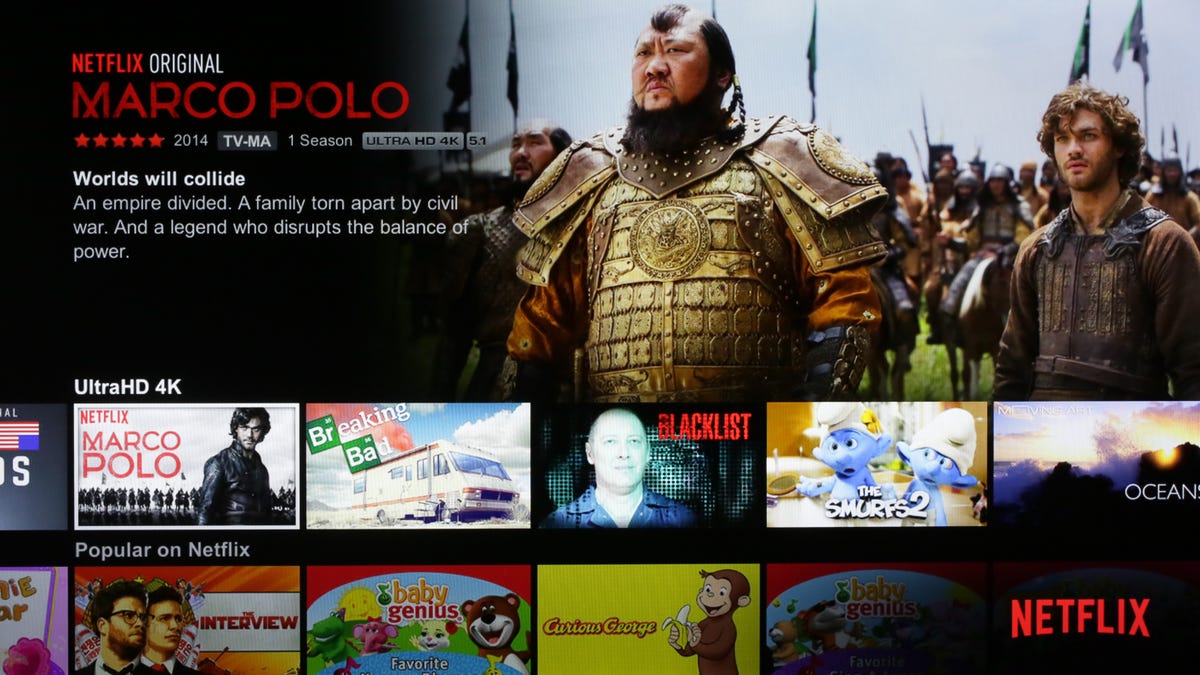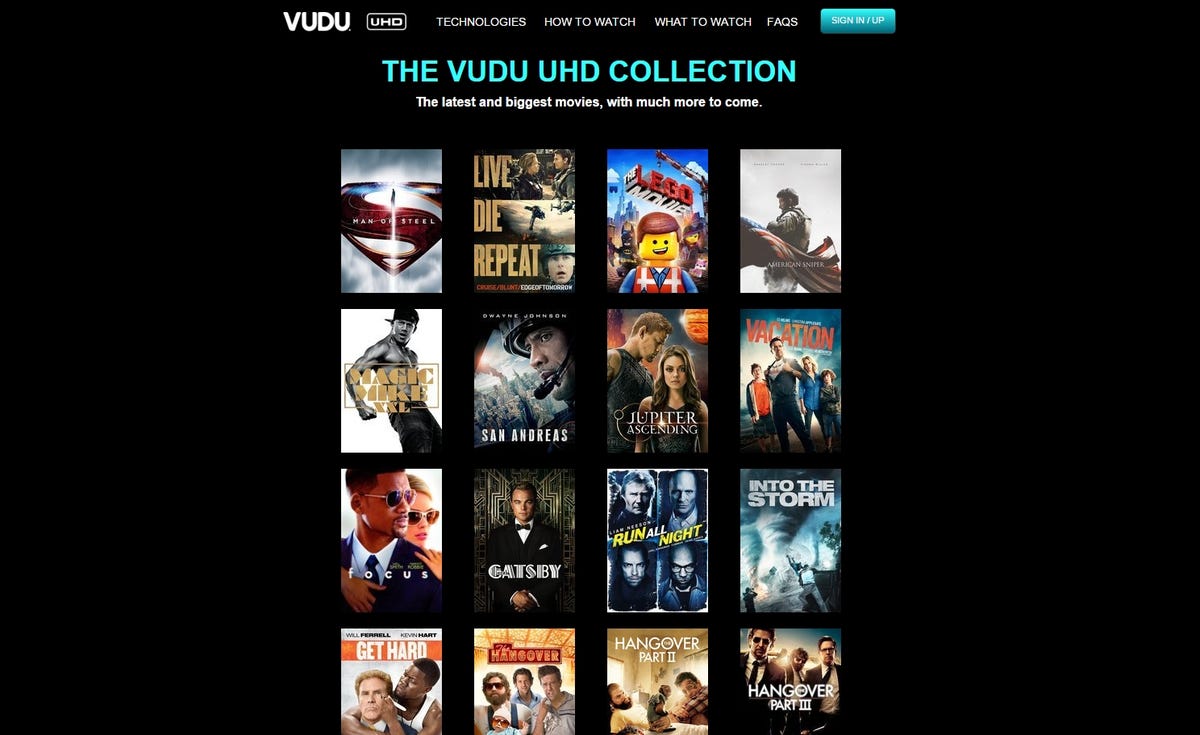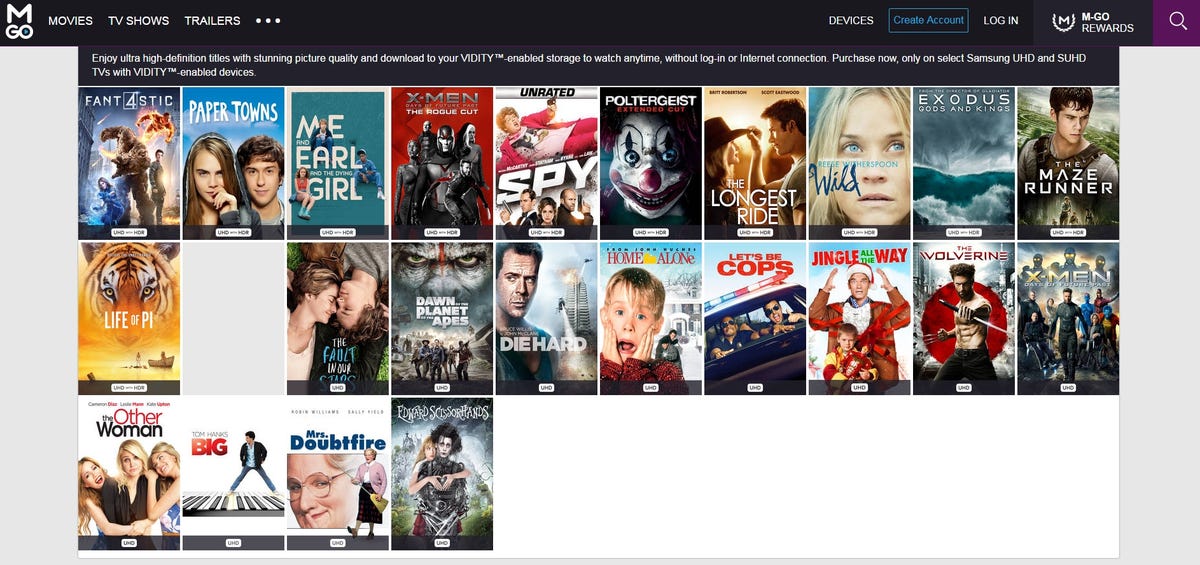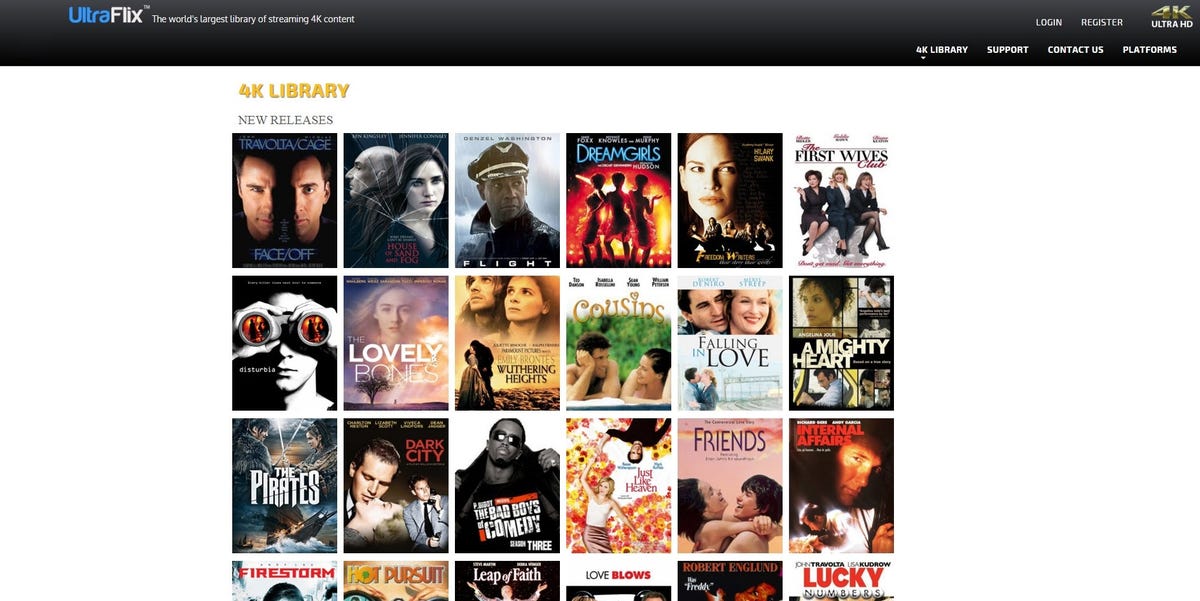I’ll start with the bad news. Even though TVs with 4K/Ultra high-definition resolution have been available for a couple of years now, there still aren’t a lot of actual 4K TV shows and movies available.
Aside from YouTube, 4K today mostly consists of original TV series streaming from Netflix and Amazon. We won’t get 4K Blu-ray until next year, and there are no 4K TV channels in sight.
So what’s the good news? There’s more 4K to watch than there was last year, and your new 4K TV probably has an app or three that can show it for free (as part of your subscription). If your TV doesn’t have the right app, you can buy a new 4K-streaming device, like a Roku 4, to serve up those extra pixels.
4K promises improved picture quality since it has four times as many pixels as the highest high-definition resolution, namely 1080p/1080i. Those extra pixels are often very difficult to discern in the best of cases however, and in our tests 4K streams and regular high-definition streams looked very similar. So even though 4K can look great, so can good old 1080p, and you shouldn’t expect to be blown away by the difference.
Below you’ll find a roundup of today’s 4K/Ultra HD sources and what you’ll need to watch them on your TV. It’s important to keep in mind that almost all the content listed is streaming, and to do that, you’ll need an Internet connection of at least 15 Mbps, ideally more. Netflix recommends 25 Mbps.
Amazon
Amazon Original shows like “The Man in the High Castle” and Amazon pseudo-exclusives like “Orphan Black.” Certain shows, like “Mozart in the Jungle” and “Bosch,” are also in High Dynamic Range (HDR). Some 4K movies can be purchased or rented.
You’ll need: A Prime subscription ($99, £79 per year, but includes things like free 2-day shipping, music streaming and more) for streaming; built-in apps; the latest Fire TV box or Roku 4.
Netflix
Netflix original shows, like “House of Cards” and “Jessica Jones,” and movies like “Star Trek Into Darkness” and “Skyfall.”


Sarah Tew/CNET
You’ll need: Built-in apps on your TV, a Roku 4, Nvidia Shield, Amazon Fire TV (latest model) or Tivo Bolt; an upgrade (if you haven’t already) to the Premium Netflix plan, which is currently more per month than the standard plan. More info here.
VUDU
Movies like “San Andreas,” “The Lego Movie,” and “Edge of Tomorrow” are on the US service. On some devices and with some films, there’s HDR and Dolby Atmos available as well. Rent for $10, buy for $25 to $30.


Screenshot by Geoff Morrison/CNET
You’ll need: A Roku 4 or Vizio R-series (currently the only HDR and Atmos option). Vudu recommends a connection speed of at least 11 mbps, a bit lower than the others. More info here.
Sony PlayStation Video (formerly Video Unlimited)
A sizable collection of TV shows and movies.
You’ll need: Sony’s $700 FMP-X10 4K Media Player. More info here.
M-Go
A few dozen titles, most you’ve never heard of, to rent or buy. A few dozen more slightly more recognizable titles are also in HDR.


Screenshot by Geoff Morrison/CNET
You’ll need: A Samsung TV. More info here.
YouTube
There’s lots of free 4K video content on YouTube, but it’s mostly “store demo material” stuff like slow pans of landscapes, languid insects, and other pretty pictures.
You’ll need: A device with a 4K-compatible YouTube app, namely a Roku 4 or an Nvidia Shield (for built-in apps, typically only 2015 televisions excluding Vizios can handle YouTube in 4K). Or a computer.
UltraFlix
A pretty random collection of 4K movies, like “Face/Off,” “Almost Famous,” “Footloose” (nope, the other one), “Star Trek” and “Terminator Genisys.”


Screenshot by Geoff Morrison/CNET
You’ll need: Certain Sony, Samsung, Vizio or HiSense TVs. The app was also recently added to Roku 4. More info here.
DirecTV
No 4K channels yet, but some movies to rent. According to DirecTV, “The number of 4K movies varies from week to week, but there are always at least two 4K movies available to watch instantly.”
You’ll need: A Genie DVR (“Model HR34 and above”); a 4K TV with HDCP 2.2 or a “Direct TV 4K-Ready TV” (many Samsung and LG models). More info here.
Comcast
A few free NBC shows. No word yet on their Xi4 4K set-top box.
You’ll need: A Samsung TV with the Xfinity TV app. More info here.
PC
If you’re a gamer, many games can be played in 3,840×2,160, but you’ll need some serious hardware to do it. Check out how to use your 4K TV as a monitor for more info. It’s also a way to get YouTube (if your TV doesn’t support it) and Vimeo in 4K (which has started to roll out adaptive streaming for all users, and across all their apps early next year).
The future: 4K Blu-ray!
In early 2016 we should see the first Ultra HD Blu-ray player and discs hit the market. This should expand the amount of content significantly. More importantly, it will increase the quality of the content, since streaming 4K is at best only marginally better — and can look worse — than (regular) Blu-ray.
In the first wave you can expect two things with absolutely certainty: high disc prices and low movie quality. Such as been the case with every new format release. Terrible movies on pretty, pretty discs (or tapes, or big discs).
Prices will fall, better movies will be released. Sands through the hourglass…
Is it worth upgrading to a 4K TV yet?
In reality, there’s still not a lot of 4K content. A few TV shows, and a few movies. This early into the HD transition, we were in a little better shape, in terms of content (thanks to all the broadcasters trying to top one another). If you’re considering getting a 4K TV because of the content, well, it’s not worth it yet just for that.
If your TV is pretty old and you’re considering upgrading, know that 4K TVs aren’t stupid (anymore), and the best looking TVs today also just happen to be 4K. If you do, there will be some content to watch, and more than they’re used to be, just not a lot. Yet.
Got a question for Geoff? First, check out all the other articles he’s written on topics such as why all HDMI cables are the same, LED LCD vs. OLED vs. Plasma, why 4K TVs aren’t worth it and more. Still have a question? Send him an email! He won’t tell you what TV to buy, but he might use your letter in a future article. You can also send him a message on Twitter @TechWriterGeoff or Google+ and check out his travel photography on Instagram.




